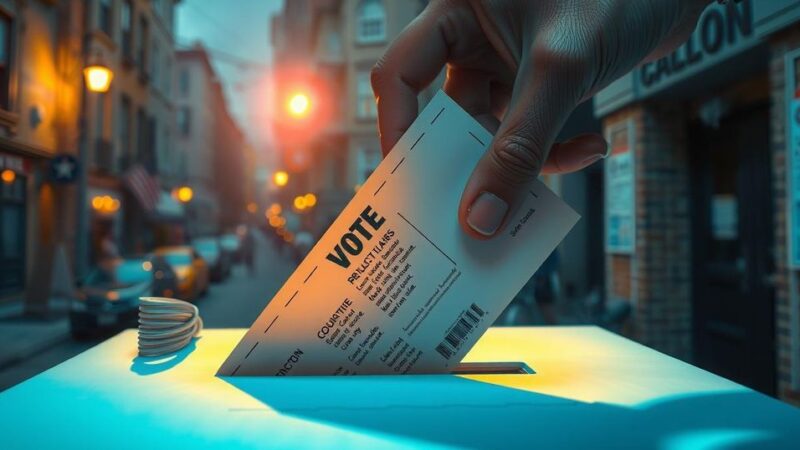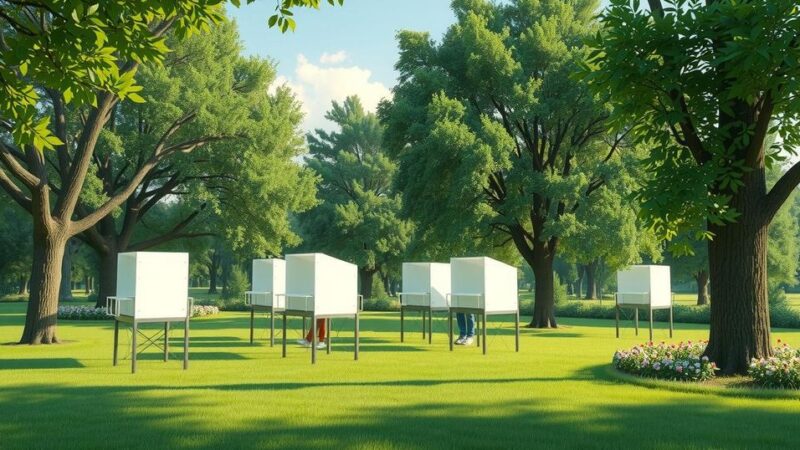The article contends that, amid pervasive political anxiety, individuals should intentionally allocate their attention towards personal and immediate experiences rather than being consumed by the political drama surrounding elections. It argues that maintaining mental equilibrium is not only beneficial for personal sanity but is also essential for a healthy democracy.
In these turbulent times, advocating for a lesser focus on the incessant dramas of presidential politics may lead to significant criticism. It is often perceived as an escapist notion, particularly considering the palpable stakes in the political arena. Yet, what if one were to propose that strategically channeling your attention away from the urgent clamor of political events could represent a rational and perhaps necessary approach? This practice not only upholds personal sanity, but might also serve a broader civic duty. The recommendations here do not encompass abstaining from voting, engaging in political discourse, or contributing to election efforts. Rather, the essence of the argument, shaped by insights from the author’s explorations of human limitations, posits the importance of dedicating time and space to the local and personal spheres of life. These areas — whether it be basking in the sun’s warmth, enjoying a meal with loved ones, or sharing a laugh with a child — are essential for maintaining one’s mental health and, paradoxically, supporting democracy itself. Anecdotes such as that of French philosopher Raymond Aron illustrate this point well. While strolling in Paris with his family, Aron encountered fellow academic Simone Weil, who was visibly upset by distant political turmoil — the stark reality being that most individuals cannot afford the emotional bandwidth to remain vigilant about all global events. In today’s attention-driven economy, the most coveted commodity is not merely news but the attention of individuals. Media outlets and political organizations often inflate the urgency of their messages, creating an environment where individuals may feel as if they exist solely within a continuous news cycle. This preoccupation can be perilous; ironically, those who perceive themselves as defenders of democracy may unwittingly contribute to a condition where political concerns overshadow personal realities — a situation reminiscent of totalitarian societies. Thus, it remains crucial to strike a balance by preserving an area in one’s life that is free from political preoccupation, enabling individuals to engage thoughtfully and meaningfully in the political process without succumbing to its overwhelming grip. To free one’s mind can empower the upcoming election with more profound implications than mere electoral outcomes.
The article discusses the mental and emotional strain caused by excessive engagement with the ongoing political climate, particularly during elections. It explores the idea that individuals could benefit from stepping back from political dramas to preserve their mental health and personal relationships. It suggests that while participating in democracy is essential, so is taking care of one’s mental well-being by focusing on immediate, personal experiences. Drawing on philosophical insights, the article urges a re-evaluation of how one’s attention is allocated in the face of ever-present political tension.
In conclusion, the article advocates for a more measured approach to political engagement, emphasizing the need for individuals to reclaim their attention from the relentless political narrative. By fostering connections to the personal and immediate aspects of life, individuals can not only enhance their well-being but also engage in the democratic process with greater clarity and purpose. Striking a balance between political involvement and personal serenity is crucial for the health of both the individual and democracy as a whole.
Original Source: www.nytimes.com






